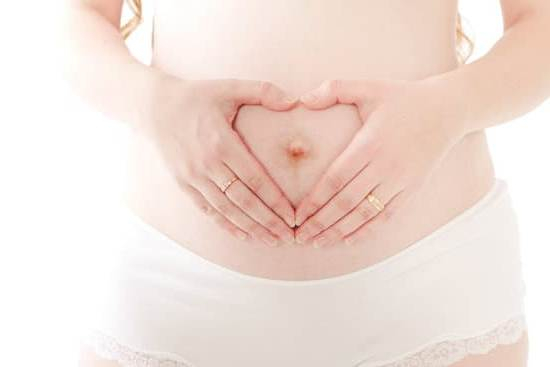Are you curious about when pregnancy cravings start and what causes them? Many expectant mothers wonder when they will start to experience these intense and sometimes unusual food urges. Hormonal changes, nutritional needs, and even the gender of the baby have all been said to play a role in causing these cravings. In this article, we will delve into the science behind pregnancy cravings, when they typically begin, and how to manage and satisfy them.
Pregnancy cravings are a common phenomenon that many women experience during their journey to motherhood. These sudden desires for specific foods can range from sweet treats to savory snacks, and can sometimes be unexpected or out of character for the individual experiencing them. Understanding the factors that contribute to these cravings can help expectant mothers navigate through this unique aspect of pregnancy.
Early pregnancy is often associated with food aversions as well as cravings. The hormonal changes that occur during this time can greatly impact a woman’s appetite and taste preferences. Additionally, these changes can also influence how certain smells are perceived, which may lead to an aversion towards certain foods that were once enjoyed. As pregnancy progresses, these aversions may lessen while cravings become more pronounced.
Early Pregnancy and Food Aversions
During the early stages of pregnancy, many women experience a variety of changes in their eating habits. While cravings are often talked about, it is important to also acknowledge the prevalence of food aversions during this time. These aversions can be just as intense and impactful on a woman’s diet and well-being.
Understanding Food Aversions
Food aversions during early pregnancy refer to the strong dislike or avoidance of certain foods that a woman may have previously enjoyed. This can be attributed to hormonal changes, particularly an increase in estrogen levels, which can heighten a woman’s sense of smell and taste. As a result, certain foods may suddenly become unappealing or even repulsive.
Impact on Nutrition
This distaste for certain foods can make it challenging for pregnant women to consume a well-balanced diet. This is especially concerning because proper nutrition during pregnancy is crucial for the health and development of both the mother and the baby.
It’s important for expectant mothers to find ways to ensure that they are still meeting their nutritional needs, despite these aversions. Consulting with a healthcare provider or nutritionist can provide guidance on alternative food options and supplements if necessary.
Hormonal Changes and Their Impact on Cravings
During pregnancy, hormonal changes play a significant role in causing cravings. The surge in hormones, such as estrogen and progesterone, can lead to changes in taste and smell perception, which in turn influences the foods that pregnant women crave. These hormonal fluctuations can also affect the body’s metabolism and nutrient needs, contributing to an increased desire for certain types of food.
In early pregnancy, the rise in hormone levels can result in food aversions as well as cravings. Many women experience an aversion to foods that they previously enjoyed, while simultaneously developing strong cravings for other foods. This is often attributed to the body’s natural response to protect the developing fetus from potentially harmful substances. For example, some women may find themselves repelled by strong flavors or aromas, such as coffee or spicy foods, while craving milder or bland options.
Research has shown that around 50-90% of pregnant women experience cravings at some point during their pregnancy. These cravings typically peak during the first trimester and tend to subside as the pregnancy progresses. However, it’s important to note that every woman’s experience with cravings is unique, and they can vary widely in terms of intensity and specific food preferences.
| Hormonal Changes | Impact on Cravings |
|---|---|
| Rise in hormone levels | Changes in taste and smell perception; influence on nutrient needs |
| Early pregnancy | Frequent food aversions alongside strong cravings; natural protective mechanism for the fetus |
| Prevalence | Around 50-90% of pregnant women experience cravings; typically peak in first trimester |
Cravings as a Sign of Nutritional Needs
Pregnancy cravings are one of the most talked-about aspects of pregnancy, and many women experience them at some point during their journey to motherhood. These can manifest as a sudden desire for specific types of food or even non-food items. While it’s common to associate pregnancy cravings with later stages of pregnancy, they can actually start as early as the first trimester.
During early pregnancy, women may also experience food aversions, where certain foods that they previously enjoyed now become unappealing or even repulsive. This is often attributed to hormonal changes, particularly the hormone hCG (human chorionic gonadotropin), which is at its peak during the first trimester. These hormonal fluctuations can trigger strong reactions to certain tastes and smells.
In addition to hormonal changes, cravings can also be an indication of nutritional needs. For example, a craving for red meat could signal a need for more iron, while a desire for dairy products might indicate a need for more calcium. It’s important for expectant mothers to pay attention to these cravings and try to fulfill them with healthy choices whenever possible.
| Pregnancy Craving | Nutritional Need |
|---|---|
| Chocolate | Magnesium |
| Citrus fruits | Vitamin C |
| Red meat | Iron |
When Do Cravings Typically Start in Pregnancy?
During pregnancy, it is common for women to experience cravings for certain foods. These cravings can be quite intense and may drive expectant mothers to seek out specific types of food. But when do these cravings actually start in a pregnancy?
1. Early Pregnancy: The first trimester of pregnancy is typically characterized by hormonal changes and physical symptoms such as nausea and fatigue. It is during this time that many women may also experience food aversions, where they develop a strong dislike for certain foods. This phase may make it difficult to pinpoint the onset of cravings, as the body is still adjusting to the changes brought about by pregnancy.
2. Second Trimester: For some women, cravings start to kick in around the second trimester, which is often referred to as the “honeymoon phase” of pregnancy. Hormonal changes continue during this period, but many women find relief from early pregnancy symptoms such as morning sickness. As a result, they may begin to notice an increase in appetite and a desire for specific types of foods.
3. Third Trimester: As the due date approaches, some women may find that their cravings become more pronounced. The body’s nutritional needs are increasing to support the growing fetus, which may lead to stronger urges for certain nutrients or particular foods.
It’s important to note that every woman’s experience with pregnancy cravings is unique. While some may start experiencing them early on, others may not notice significant cravings until later in their pregnancy. Additionally, external factors such as stress and emotions can also play a role in triggering cravings throughout the entire duration of pregnancy.
Ultimately, understanding when cravings start in a pregnancy can vary from woman to woman and even from one pregnancy to another for the same individual. The important thing is for expectant mothers to listen to their bodies and seek out nutritious options to satisfy their cravings while supporting their overall health during this crucial time.
Commonly Craved Foods During Pregnancy
During pregnancy, many women experience intense cravings for specific types of foods. These cravings can range from sweet and indulgent treats to savory and salty snacks. It is important to understand that these cravings are often driven by hormonal changes and the body’s increased need for certain nutrients. Here are some commonly craved foods during pregnancy:
- Chocolate: Many pregnant women find themselves longing for chocolate, which may be due to the body’s need for magnesium.
- Ice cream: The creamy texture and sweetness of ice cream can be incredibly appealing to expectant mothers, especially during the hot summer months.
- Pickles: This classic pregnancy craving may seem strange, but the sour and crunchy taste of pickles can be satisfying for women experiencing morning sickness or nausea.
- Spicy foods: Some women develop a strong desire for spicy foods during pregnancy, possibly as a result of hormonal changes affecting taste buds.
- Fruit: Whether it’s fresh berries, juicy watermelon, or tangy citrus fruits, many pregnant women crave the natural sweetness and refreshing flavors of various fruits.
It is important to note that every woman’s experience with pregnancy cravings is unique. While some may have an insatiable desire for one particular food, others may not experience any strong cravings at all. Additionally, cultural influences and personal preferences play a role in shaping a pregnant woman’s food cravings.
Eating a well-balanced diet that includes a variety of nutrient-dense foods is essential during pregnancy. While it is okay to indulge in cravings occasionally, it is crucial to prioritize the consumption of healthy and nourishing foods to support both maternal and fetal health.
If you find yourself craving unhealthy or less nutritious foods frequently, consider speaking with your healthcare provider or a registered dietitian for guidance on how to manage these cravings while still meeting your nutritional needs during this critical time.
Dealing With Pregnancy Cravings
During pregnancy, many women experience cravings for specific foods, which can be quite intense and sometimes unusual. Managing these cravings can be challenging, but it is essential to find ways to satisfy them in a healthy manner. Here are some tips for dealing with pregnancy cravings:
Understanding the Root of the Craving
Before giving in to a craving, it’s important to understand where it’s coming from. Is the craving for a certain food due to emotional reasons, such as stress or boredom? Or is it a result of your body’s need for specific nutrients? Understanding the root cause of the craving can help you manage it effectively.
Incorporating Nutrient-Rich Options
When you experience strong cravings during pregnancy, instead of reaching for unhealthy options, try incorporating nutrient-rich alternatives. For example, if you’re craving something sweet, opt for fruits instead of sugary snacks. If you’re yearning for something salty, choose nuts or seeds as a healthier option.
Moderation Is Key
It’s important to indulge in your cravings in moderation. Allowing yourself to enjoy small portions of your desired food can help satisfy the craving without overindulging. Practicing portion control is crucial in managing pregnancy cravings while still maintaining a well-balanced diet.
By implementing these tips, pregnant women can effectively manage their cravings and make healthier choices when satisfying them. It’s important to remember that experiencing cravings during pregnancy is normal and finding healthy ways to address them is key for both the mother’s and baby’s well-being.
Cravings and the Gender of the Baby
Many expectant mothers have reported experiencing specific cravings for certain foods during pregnancy, leading to the widespread belief that these cravings may be linked to the gender of their baby. While this is a popular notion, there is limited scientific evidence to support the idea that pregnancy cravings are connected to the sex of the baby.
Despite this lack of concrete evidence, cultural beliefs and old wives’ tales continue to perpetuate the idea that specific food cravings can indicate the gender of a baby. For example, it is commonly believed that craving salty or savory foods signifies a boy, while craving sweets or fruits indicates a girl. However, it’s important to note that these beliefs are not grounded in scientific research and should be taken with a grain of salt.
In reality, there is no definitive link between pregnancy cravings and the gender of the baby. Cravings during pregnancy are more likely to be influenced by hormonal changes, nutritional needs, and individual preferences rather than being indicators of whether an expectant mother is carrying a boy or girl. It’s essential for pregnant women to focus on maintaining a balanced diet and meeting their nutritional requirements regardless of their food cravings.
Conclusion
Pregnancy cravings are a fascinating aspect of the experience of expecting a child. As we have explored throughout this article, cravings can be influenced by a variety of factors, including hormonal changes, nutritional needs, and even cultural and psychological influences. It is clear that cravings are a normal part of pregnancy and can vary greatly from woman to woman. Some may experience food aversions in the early stages, while others might begin to crave specific foods right away.
While there is no precise answer to the question “when do cravings start in a pregnancy,” it is important for expectant mothers to remember that every pregnancy is unique. Some women may notice cravings early on, while others may not experience them until later in their pregnancy. Regardless of when they begin, it is crucial for pregnant women to pay attention to their bodies’ signals and ensure that they are meeting their nutritional needs.
In conclusion, understanding and embracing pregnancy cravings can help expectant mothers navigate this aspect of their journey with greater ease. By listening to their bodies, seeking out nourishing foods, and finding ways to manage and satisfy their cravings in a healthy manner, women can embrace this unique aspect of pregnancy with confidence and appreciation.
And while the notion that certain cravings may be linked to the gender of the baby remains an intriguing topic for many, it’s important to remember that ultimately, what matters most is ensuring both mother and baby are healthy and well-nourished during this transformative time.
Frequently Asked Questions
Can You Have Cravings at 2 Weeks Pregnant?
It is unlikely for a woman to have noticeable cravings at 2 weeks pregnant since this is still very early in the pregnancy. At this stage, the body is just beginning to adjust to the hormonal changes.
What Does a Pregnancy Craving Feel Like?
Pregnancy cravings can feel like an intense desire or hunger for a specific type of food or drink. Some women describe it as a strong urge that they cannot ignore, often leading to them seeking out and consuming the desired item.
What Month Do Cravings Start in Pregnancy?
Cravings during pregnancy can start as early as the first trimester, typically around the 6th to 8th week. However, some women may not experience significant cravings until the second trimester when their sense of smell and taste become more heightened. This can vary from woman to woman.

Welcome to my fertility blog. This is a space where I will be sharing my experiences as I navigate through the world of fertility treatments, as well as provide information and resources about fertility and pregnancy.





